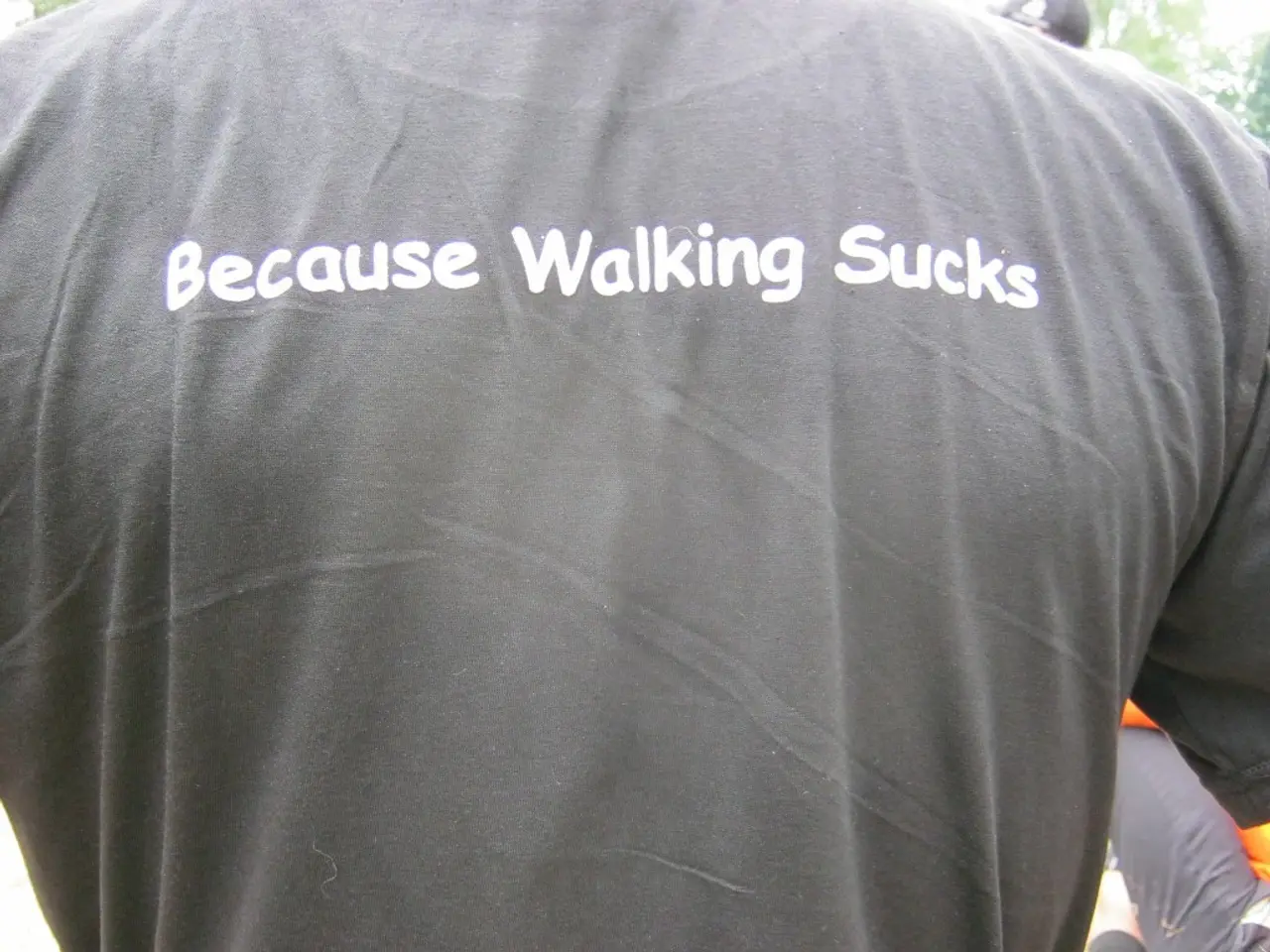A recent study reveals a straightforward walking trick that might prolong your life.
A study published in the American Journal of Preventive Medicine has found that fast walking for 15 minutes a day could significantly reduce the risk of early death among predominantly low-income and Black individuals [1][2][3]. The study, which analysed data from nearly 80,000 adults across 12 southeastern U.S. states, revealed that this simple, low-cost activity could offer substantial improvements in longevity and cardiovascular health [4].
The benefits of fast walking were particularly strong for reducing deaths from cardiovascular diseases, such as heart failure and ischemic heart disease, suggesting that this activity could improve heart efficiency and reduce cardiovascular risk factors like obesity, hypertension, and high cholesterol [3][4]. In contrast, slow walking, even for longer durations (over three hours), was associated with only a modest and statistically non-significant mortality reduction of about 4% [1][2][3].
This study is significant because it focuses on groups often underrepresented in research, such as low-income and Black populations, providing concrete evidence that a simple activity like brisk walking can have a substantial impact on health outcomes in these communities [4].
Dr Lili Liu, the lead author of the study, emphasized the importance of public health campaigns and community programs to encourage fast walking for improved health outcomes [5]. She also recommended offering resources and support to make it easier for people to walk more and walk faster.
Individuals should strive to incorporate more intense physical activity into their routines, such as brisk walking or other forms of aerobic exercise. It's important to note that the benefit of brisk walking was independent of other forms of physical activity [3].
In conclusion, fast walking for just 15 minutes a day could be a simple and effective way to improve cardiovascular health and potentially reduce the risk of early death. This study underscores the importance of promoting physical activity, particularly brisk walking, to improve health outcomes, especially in communities that are often underrepresented in research.
References: - Nearly 20% lower mortality with 15 minutes fast walking daily in low-income and Black adults, strongest for heart-related deaths [1][2][3][4]. - Slow walking has minimal mortality benefit compared to fast walking [1][2]. - Benefits due to improved heart efficiency and reduced cardiovascular risk factors [3][4]. - Lead investigator Dr Wei Zheng of Vanderbilt University Medical Center stated that fast walking for 15 minutes a day was associated with a nearly 20% reduction in total mortality [6]. - The study linked brisk walking to a 20% reduction in all-cause mortality [7]. - The study particularly focused on low-income and Black individuals [8]. - The health outcomes of the participants were tracked over a median follow-up period of 16.7 years [9]. - Dr Lili Liu also recommended offering resources and support to make it easier for people to walk more and walk faster [10]. - The 10,000-step myth was not discussed in the current paragraph [11]. - Dr Lili Liu, the lead author, suggested public health campaigns and community programs to emphasize the importance and availability of fast walking for improved health outcomes [12]. - Individuals should strive to incorporate more intense physical activity into their routines, such as brisk walking or other forms of aerobic exercise [13]. - The benefit of brisk walking was independent of other forms of physical activity [14].
- Encouraging brisk walking can lead to substantial improvements in health and wellness, particularly in terms of heart-related diseases, thanks to its impact on heart efficiency and reduction of risk factors like obesity, hypertension, and high cholesterol.
- This form of exercise, which involves fast walking for 15 minutes a day, could potentially reduce the risk of early death, especially in the case of low-income and Black populations, as demonstrated in several research studies.
- It's essential to emphasize the importance of public health campaigns and community programs to promote brisk walking, as suggested by Dr Lili Liu, the lead author of the study, for improved health outcomes and addressing health disparities in underserved communities.
- Engaging in more intense physical activities, like brisk walking or other aerobic exercises, can significantly contribute to fitness-and-exercise regimens, with benefits from brisk walking being independent of other forms of physical activity.




